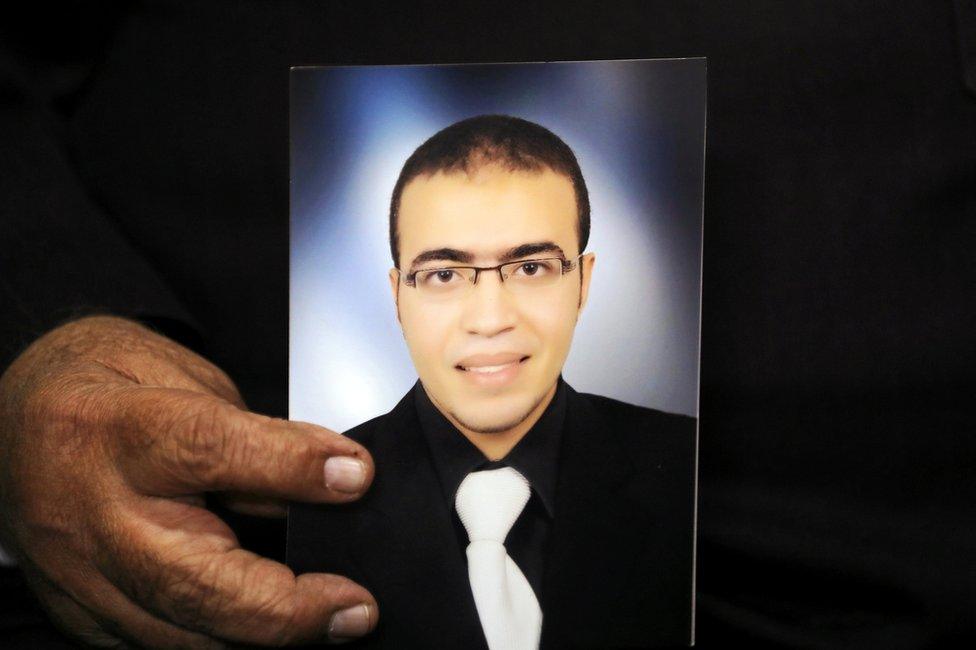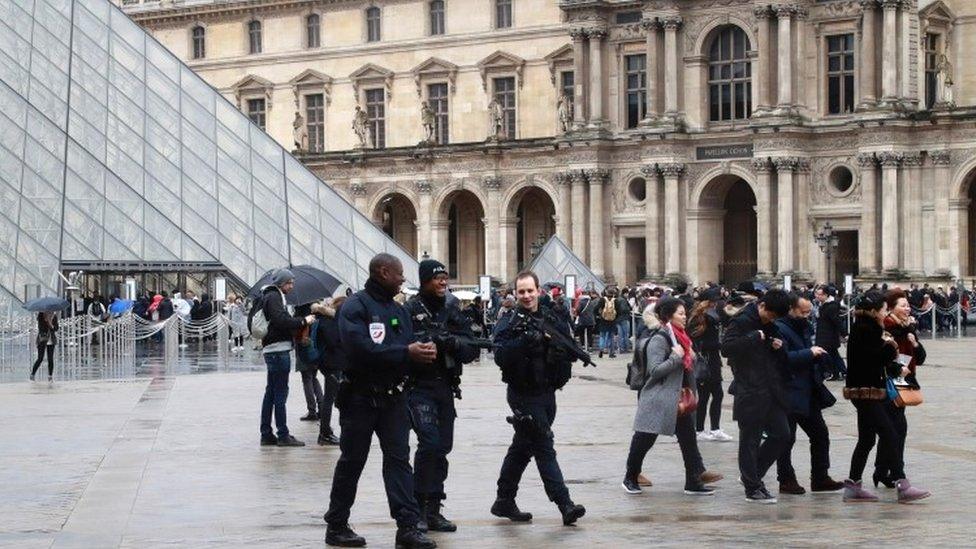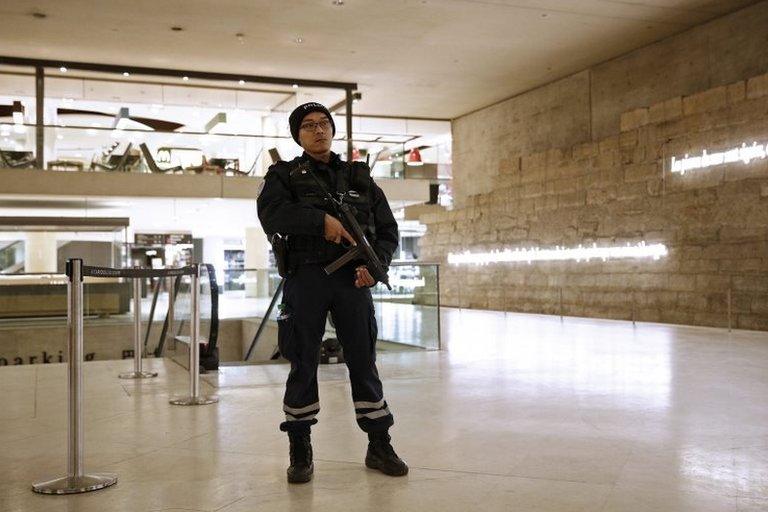Louvre attack: My son is no terrorist, says suspect's father
- Published
"France is strong" - Tourist at the Louvre museum in Paris
The father of a man shot by a French soldier as he carried out a machete attack at the Louvre museum in Paris says his son is not a terrorist.
Retired Egyptian police general Reda al-Hamamy accused the soldier who shot him of "using brute force with a poor young man".
The French authorities say his son Abdullah, 29, was shot when he attacked the soldiers, injuring one of them.
They say he shouted the Islamic phrase "Allahu Akbar" ("God is greatest").
A French police source said Abdullah Hamamy was no longer in a critical condition but was still unable to communicate and could not yet be questioned.
French officials have not confirmed the identity of the injured man but Egyptian security sources named him.
President Francois Hollande praised the soldiers' actions, saying they had "prevented an attack whose terrorist nature leaves little doubt".
The Louvre, which is home to numerous celebrated art works, including the Mona Lisa, reopened on Saturday.
'Cover-up'
The suspect arrived in France on 26 January after obtaining a tourist visa in Dubai, Paris prosecutor Francois Molins said on Friday. He is believed to have bought two machetes after arriving.

The father showed a picture of his son
Cans of spray paint, but no explosives, were found in his backpack, Mr Molins added.
The injured man's father told Reuters news agency his son had not been radicalised and that it was "nonsense" to call him a terrorist.
"This is a cover-up so they don't have to apologise or justify the acts of this soldier who used brute force with a poor young man of 29," he said, speaking in Daqahliya, Egypt.

Crowds returned to the Louvre as it reopened to a day after the attack
The incident at the Louvre occurred at the entrance of an underground shopping centre leading to the museum.
Hundreds of visitors were inside the museum at the time of the attack and were evacuated.
Armed police and soldiers patrolled the site on Saturday as international tourists lined up to gain entrance.
The guards on patrol outside the museum were just some of the thousands of troops lining the streets as part of the stepped-up response to a series of attacks in France in recent years:
Attacks by gunmen and suicide bombers in Paris claimed by so-called Islamic State killed 130 people on 13 November 2015.
An attack on the Charlie Hebdo magazine in Paris on 7 January 2015, and subsequent related shootings, left 17 people dead
On 14 July 2016, 86 people were killed when a lorry ploughed through crowds celebrating Bastille Day in the southern city of Nice

The Louvre has seen heightened security since France has been hit by a wave of attacks in recent years
Security has become a theme of the French presidential election in April, which sees far-right leader Marine Le Pen and centrist independent Emmanuel Macron leading the polls.